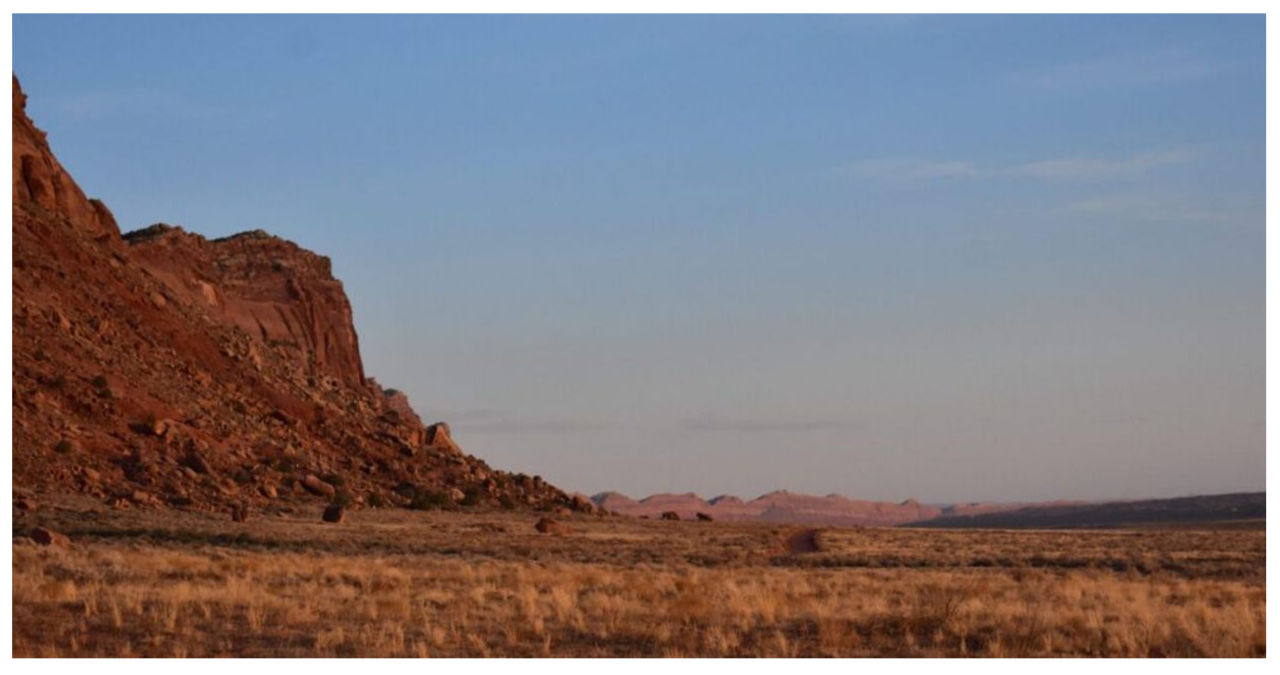The photo above shows a scenic view of a section of Comb Ridge in Bears Ears National Monument. The image captures the natural beauty of the area, with its rugged cliffs and stunning rock formations. This photograph was taken on May 9, 2018, by Kyle Dunphey, a photographer for the Utah News Dispatch.
Elected officials in Utah, including members of the congressional delegation, the governor, and the attorney general, are expressing their strong opposition to a recent rule implemented by the Bureau of Land Management (BLM). They are determined to challenge this rule through legislative and legal means.
The BLM recently finalized its “Public Lands Rule,” which permits the leasing of parcels of public land for conservation purposes. This new rule is in line with the agency’s current practices of leasing land for activities such as mineral extraction, energy development, recreation, or grazing.
The rule proposes the implementation of two types of leases on BLM land: restoration leases and mitigation leases. A restoration lease would enable groups or individuals to enhance habitats and preserve or rehabilitate land. On the other hand, a mitigation lease would serve the purpose of offsetting the impact of existing development and projects on BLM land.
Environmental groups, including the Southern Utah Wilderness Alliance, widely celebrated the rule, stating that it will prioritize conservation efforts.
Kate Groetzinger, communications manager for the Center for Western Priorities, emphasized the detrimental effects of extractive industries on public lands. Over time, this has resulted in degraded landscapes and the decline of iconic species such as the greater sage-grouse. In light of these issues, Groetzinger believes that the new rule will empower the Bureau of Land Management (BLM) to rectify these situations and restore the health of our public lands.
Utah Republicans have voiced their concerns regarding the rule, claiming that it would restrict access to land and limit traditional activities such as grazing and commercial guiding. The Utah Department of Natural Resources has stated that the rule would have a detrimental effect on the 22.8 million acres of BLM land in Utah.
BLM to finalize rule allowing federal leases targeted at protection of natural areas
Utah Governor Spencer Cox expressed his eagerness to collaborate with Utah Attorney General Sean Reyes in combating the rule through legal channels.
According to Cox, the Public Lands Rule implemented by the BLM introduces additional layers of red tape and federal bureaucracy, which ultimately hinders conservation efforts. He expresses concern that this rule will have negative consequences for the health of Utah’s lands and wildlife. Cox argues that the rule goes against the fundamental principle of “multiple-use” outlined in the BLM’s governing law, the Federal Land Policy and Management Act.
Republican Representatives John Curtis, Celeste Maloy, and Blake Moore expressed their sentiment during a Federal Lands Subcommittee field hearing held in Sand Hollow State Park in Hurricane. The hearing was a part of the House Committee on Natural Resources.
“The Public Lands Rule, according to Curtis, unfairly benefits affluent individuals and environmental organizations. He criticizes the rule for introducing a complex leasing system that enables these groups to monopolize lands that are meant to be shared by all Utahns. In light of this, Curtis has taken action by introducing a bill that aims to completely eliminate the Public Lands Rule.”
The Western Economy Security Today Act, also known as the WES Act, has made significant progress in Congress. Although it has successfully passed the House Natural Resources Committee, it still awaits a final vote from lawmakers. This bill aims to address various economic and security issues affecting the western region, and its passage is eagerly awaited.
Curtis insisted that it is Congress, not the BLM, who should be responsible for introducing any new public lands leasing option. He emphasized the need for decisions to be made collectively rather than being driven by the will of a single individual.
Curtis emphasized that his bill aims to prioritize “true conservation” that is based on local input rather than relying on preservationist policies enforced by the Biden administration.
We would love to hear your thoughts…
Moore inquired about the effectiveness of the rule to Washington County Commissioner Adam Snow, expressing her belief that it does not effectively address the issue at hand. Snow, in response, described the rule as a significant obstacle that hampers grazing on public land.
Snow emphasized the abundance of land available in the county and stressed the significance of conservation efforts. However, he also highlighted the importance of maintaining a balance between various uses of the land. According to Snow, elevating the conservation rule to the same level as other uses can hinder grazing activities.
The Southern Utah Wilderness Alliance criticized the hearing, describing it as “partisan” and “out of touch with local and national support for protecting public lands.”
Travis Hammill, the Washington D.C. director of the group, emphasized the importance of prioritizing conservation efforts in areas like Washington County and throughout Southwest Utah. These regions are experiencing rapid growth and are also grappling with the effects of climate change, including prolonged droughts and dwindling water resources.



